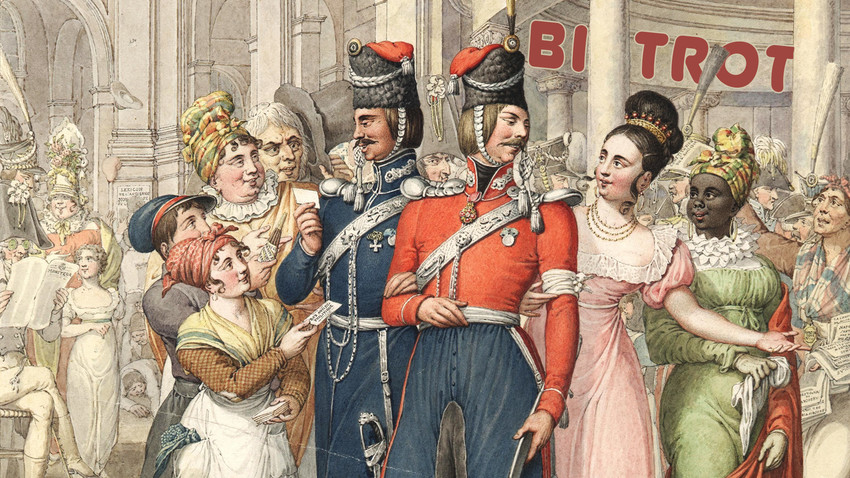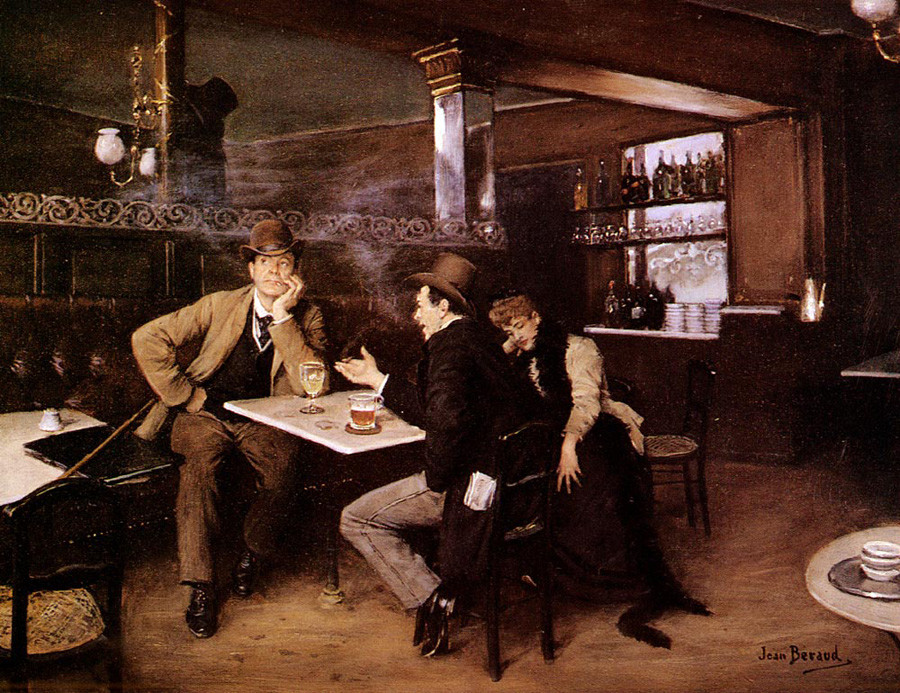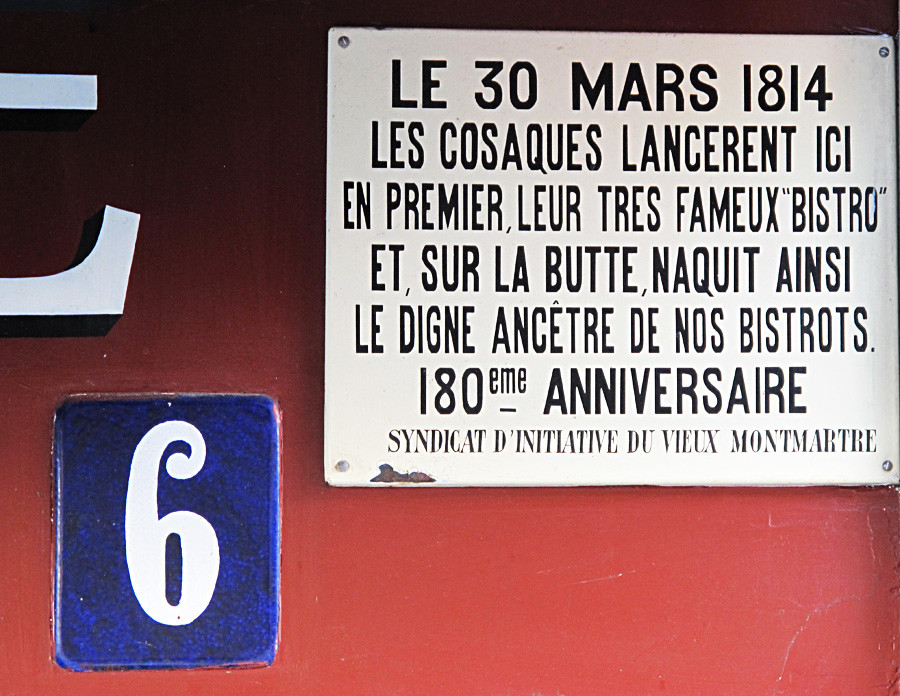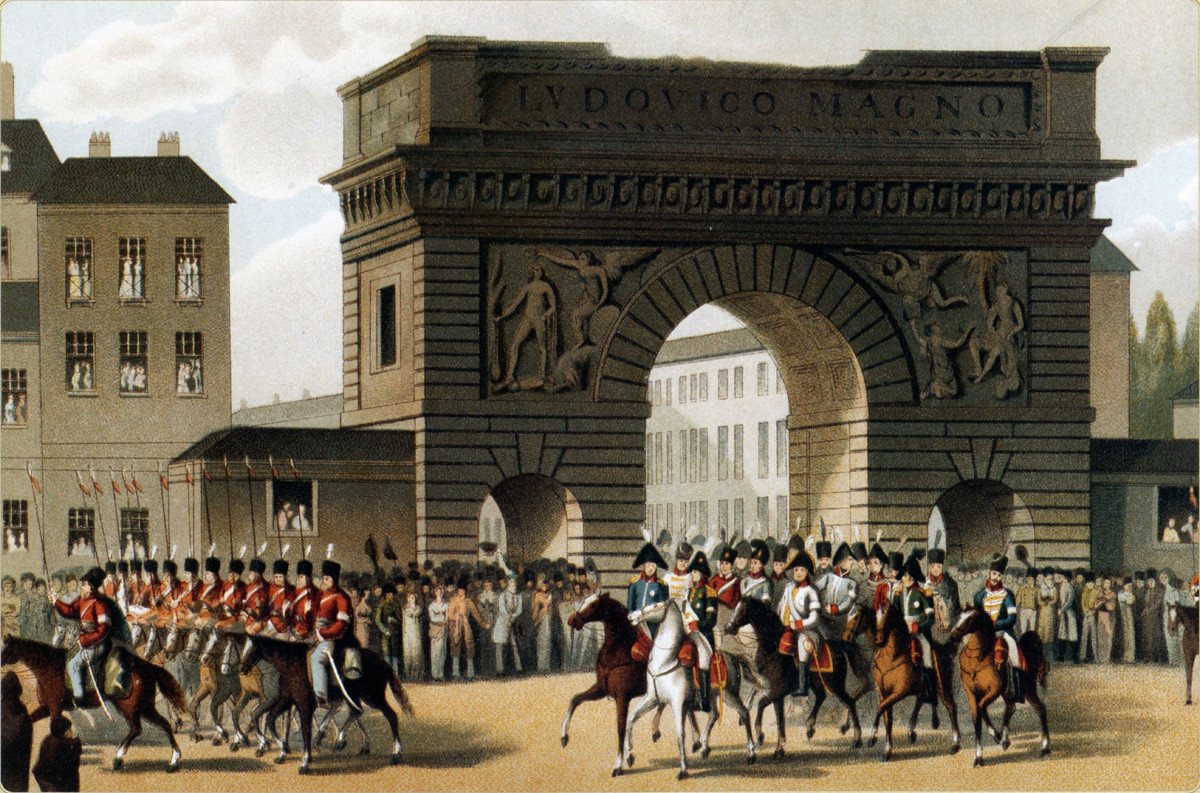
Russian Cossacks in Paris, 1814-1815
Getty ImagesA
There is a lingering legend that this french word has a Russian origin. In 1814, after the Russians followed Napoleon back to France and took Paris, a lot of Russian officers would eat in Parisian cafes and canteens. Irritated by the slowness of the French waiters, Russians would shout: “быстро!” (

'Au Bistro,' Jean Béraud
There is even a plaque in Paris, at 6, Place du Tertre, that had been put up in 1964 by the Tourist Information Services of Old Montmartre, that says the word was first coined at this place.

Plaque about the legend of the origin of the word "Bistrot." 6, place du Tertre, Paris
Tangopaso (CC BY-SA 3.0)But there’s just one little problem: this is purely a legend, and here’s why:
To begin with, Russian officers in 1814 didn’t need to shout anything in Russian, because they all spoke impeccable French, which was a must for any Russian nobleman, and all officers of the Russian army were noblemen.
Secondly, even if they did shout “быстро!” in the French language, this word didn’t appear in spoken French until the end of the 19th century. There are opinions that the word was borrowed from Russian after the Franco-Prussian War of 1870, in which several Cossack mercenary regiments took part; but in the 1870s, the word didn’t yet mean a canteen or a restaurant.

The Entry of Emperor Alexander I into Paris, 1814
Getty ImagesFrench philologists argue that “
If using any of Russia Beyond's content, partly or in full, always provide an active hyperlink to the original material.
Subscribe
to our newsletter!
Get the week's best stories straight to your inbox